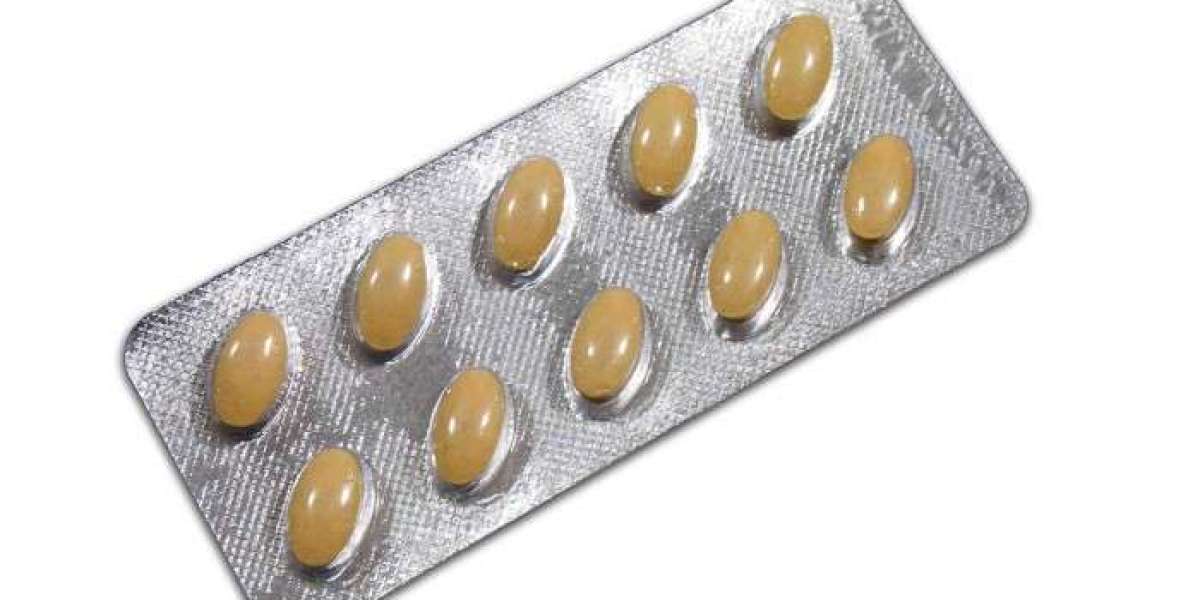Tadalafil is a widely prescribed medication used primarily for erectile dysfunction (ED) and benign prostatic hyperplasia (BPH). While it’s effective for many, it’s essential to understand how tadalafil interacts with other medications, foods, and lifestyle choices. Knowing these interactions can help ensure the medication works effectively and safely. This guide will explore the most common tadalafil interactions and how to manage them.
1. Medication Interactions
Some medications can alter the way tadalafil works or increase the risk of side effects. Here are a few important ones to keep in mind:
Nitrates
Nitrates are often prescribed for heart conditions like angina and are known to lower blood pressure. Combining nitrates with tadalafil can lead to a dangerous drop in blood pressure, resulting in dizziness, fainting, or even a heart attack. Avoid taking tadalafil if you're on nitrates.
Alpha-Blockers
Alpha-blockers are commonly used to treat high blood pressure and BPH. When used with tadalafil, they can cause an excessive drop in blood pressure, leading to dizziness and lightheadedness. If prescribed both, doctors usually start with a low dose of tadalafil and monitor blood pressure closely.
Blood Pressure Medications
Tadalafil can interact with other blood pressure medications, increasing their effects. This may lead to an exaggerated drop in blood pressure, so it’s important to speak with your doctor about any other blood pressure medications you're taking.
Antifungal and Antibiotic Medications
Certain antifungal medications, like ketoconazole and itraconazole, and antibiotics such as erythromycin, can increase the concentration of tadalafil in the blood, raising the risk of side effects. When using these drugs, your doctor might recommend a lower tadalafil dose.
HIV Protease Inhibitors
Protease inhibitors, used to treat HIV, can increase the levels of tadalafil in the blood. It’s essential to consult with your doctor to find the correct dosage when combining these medications.
Other ED Medications
Combining tadalafil with other ED medications, like sildenafil or vardenafil, can lead to an excessive drop in blood pressure and an increased risk of side effects. Taking multiple ED medications simultaneously is not recommended.
2. Food and Beverage Interactions
What you eat and drink can also influence how tadalafil works.
Grapefruit and Grapefruit Juice
Grapefruit products can increase tadalafil levels in your bloodstream, which can enhance both its effectiveness and its side effects. Avoid grapefruit products while using tadalafil unless your doctor advises otherwise.
Alcohol
Alcohol and tadalafil can both lower blood pressure. When taken together, the effects can be compounded, resulting in dizziness, headaches, and an increased risk of fainting. If you plan on drinking, keep it moderate and avoid excessive amounts to reduce these risks.
3. Lifestyle and Health Interactions
Certain health conditions and lifestyle choices can also impact how tadalafil affects you.
Heart Conditions and High Blood Pressure
Tadalafil can be unsafe for those with specific heart conditions, as it affects blood pressure. If you have severe heart disease, unstable angina, or have had a recent heart attack or stroke, you should consult with a healthcare provider before using tadalafil.
Liver and Kidney Disease
For people with liver or kidney disease, the body’s ability to process tadalafil may be impaired, potentially leading to higher drug levels and more pronounced side effects. In these cases, doctors might adjust the dosage or suggest alternative treatment options.
Physical Activity
Excessive exercise or intense physical activity can exacerbate tadalafil’s blood pressure-lowering effects. It's important to stay mindful of any unusual dizziness or lightheadedness during physical activities while on the medication.
4. Side Effects and Symptoms to Watch For
Interactions can increase the risk of experiencing side effects from tadalafil. Here are some signs to watch for:
- Severe Dizziness or Fainting: This could indicate dangerously low blood pressure.
- Painful or Prolonged Erection: A condition called priapism can result from high tadalafil levels and can cause permanent damage if not treated promptly.
- Vision or Hearing Changes: Sudden vision loss or ringing in the ears are rare but severe side effects and require immediate medical attention.
5. How to Safely Use Tadalafil
- Consult with Your Healthcare Provider: Before starting tadalafil, inform your healthcare provider of all medications, supplements, and lifestyle habits.
- Follow Dosage Instructions Carefully: Adhere strictly to the prescribed dosage, especially if you’re taking medications known to interact with tadalafil.
- Limit Alcohol Intake: Avoid heavy drinking and be mindful of any dizziness.
- Avoid Grapefruit Products: This helps reduce the risk of enhanced side effects from higher drug concentrations.
Conclusion
While tadalafil is generally safe and effective, it's crucial to be aware of potential interactions that could impact your health and the effectiveness of the medication. Being informed about these interactions and consulting your healthcare provider regularly can help you use tadalafil safely and confidently.


